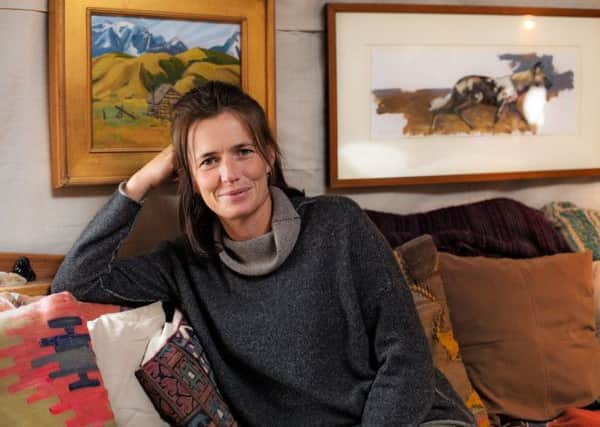Book review: Leaving Before The Rains Come


Leaving Before The Rains Come
By Alexandra Fuller
Harvill Secker, 258pp, £18.99
This is a memoir about the slow breakdown of the 22-year marriage between author Alexandra Fuller and her American husband Charlie Ross. But it’s about so much more than domestic tragedy, just as Don’t Let’s Go to the Dogs Tonight, her best-known book, was so much more than a childhood memoir.
That critically lauded piece of writing was an unflinching recollection of what it was like growing up on farms as a white African during and after the war for independence that resulted in many thousands of deaths and saw Rhodesia transformed into Zimbabwe. It looked at the experience of “white settlers” (a convenient short-hand term for non-indigenous people, some of whom who had been in Africa far longer than they’d ever lived in the UK; some whose families had been there for generations) square in the face and neither apologised for, nor tried to justify what they did before and during the war. It simply told the painful story of a family against the terrifying backdrop of danger, beauty, struggle and hope.
Advertisement
Hide AdHaving exposed the raw truth of those early years in that book – and in her memoir about her beguiling, mentally ill mother in Cocktail Hour Under the Tree of Forgetfulness – she now seems to have unburdened herself (as a writer anyway) of the compulsion to explain that tangled past and the inherited sense of guilt and sorrow that forever lives with people who have experienced war. Regardless of which side was at fault in the war for Zimbabwean independence, and no matter how unpalatable the views of many white people there were and still are, hers was a story that needed to be told – and she told it with bravery and skill.
Leaving Before the Rains Come is in some ways a more straightforward tale. By the time she meets Charlie, she is in her early twenties, living with her family on their farm in Zambia. It is safer than Zimbabwe, but precarious nevertheless. Unlike many of the men she’s met, he is well travelled but stable; seasoned but full of wonder. He craves adrenaline but is able to compartmentalise the quest for it in polo, rafting, safaris and wilderness adventures, having never been exposed to serious, unavoidable danger in the way that she and her family have. While she and her parents have learnt to find hilarity in narrow escapes (and boy, this family have experienced their fair share of fear and tragedy), Charlie recognises reckless dipsomaniacs when he sees them and doesn’t always see the funny side.
The couple bond over an all-consuming love of animals and the outdoors, and she moves with him to America to begin a new life. The ride is no less easy than it was in Africa, and financial adversity, ill health, unfulfilled creative urges, the usual day-to-day strains and Fuller’s complicated inheritance take their toll.
Every story within this book is told for a reason; every characteristic in members of the supporting cast of people and countries is symbolic. There’s her father’s blend of fortitude and carelessness; her mother’s beauty and madness; her sister’s pathological fear of pain; and, most importantly, Africa’s legacy, America’s pursuit of comfort, and Charlie’s apparent invincibility.
It is clear that Fuller observes everything, listens – really listens – to what everyone, especially her parents, say, and that she consumes information voraciously and processes it forensically. She also has a great deal to express – thoughts gush from her like water down Victoria Falls – and she is immensely well equipped to do so. Just as her burning love for the people in her life stops her from judging them, it feels at times as if the reader is being asked not to judge her when she fails to present sufficient evidence that she is trying to address aspects of her personality that she herself dislikes. As she steps back from telling the story in hand – that of the break-up of her marriage to the love of her life – she paints spellbinding pictures of her ancestors in a way that suggests she believes their legacy informs her character.
If we try to imagine ourselves as one half of a couple breaking up, this fatalism might be wildly frustrating. As she puts it: “We had allowed old, unrelated wounds become the battle scars of our marriage.” Then again, Fuller’s understanding of what it means to be African (even though she now no longer feels she deserves that description) is demonstrably deeper or at least more vividly expressed than most people’s.
Advertisement
Hide AdAnd here we come to the title of the book. At the end of the dry season in sub-Sahara Africa, the land becomes parched and many rivers and streams simply disappear, swallowed by the sun. Animals become gripped by an instinct to move elsewhere – anywhere they might find water. Their drive to leave in order to survive – in German it’s called Zugunruhe, meaning “migration restlessness” – is all-consuming.
Fuller writes: “From the wrong perspective it would be easy to mistake Zugunruhe for something destructive, mad even. Who in their right mind travels hundreds of miles in the dry season, when rain is nothing more than an idea? Why not hunker down and wait to see if things improve? Who goes anywhere on empty?”
Advertisement
Hide AdA someone who grew up in the same country at the same time as Fuller, I feel this is an authentic and involving piece of work which showcases Fuller’s exceptional skills as a writer. What I’d like to see now is some of her fiction, please.
FOLLOW US
SCOTSMAN TABLET AND MOBILE APPS